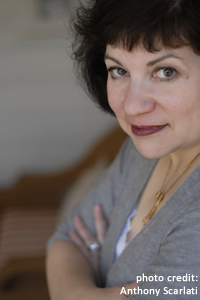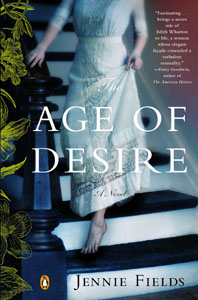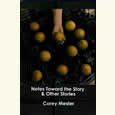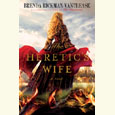Secret Pain and Passion
Jennie Fields talks about novelist Edith Wharton’s turbulent life
Novelist Edith Wharton knew the depths and complexities of the human soul. More than a hundred years later, the inexorable fall of Lily Bart in The House of Mirth still distresses and confounds readers today. In her own novel The Age of Desire, newly released in paperback, Nashville novelist Jennie Fields tells the story of Wharton’s passionate but ultimately doomed love affair with journalist Morton Fullerton. Using Wharton’s letters and diary entries for reference, Fields constructs a picture of Wharton that breaks through her public reputation—as the “lesser Henry James,” “the proper New York socialite,” even the “feminist darling”—to reveal a complicated woman who, like anyone, can make questionable choices in love.
In The Age of Desire, Wharton’s love affair with Morton threatens more than her respectability and emotional stability, however. It also jeopardizes her relationship with Anna Bahlmann, her former governess, present literary secretary, and lifelong friend. Fields skillfully depicts the temptations, choices, and regrets that both women face as they try to find solace and meaning in a world with binding gender and class rules. As emotionally complicated as any Wharton novel, The Age of Desire suggests that neither breaking nor accepting those rules is a guarantee of happiness.
 Prior to her reading at Parnassus Books in Nashville on June 3, Fields recently answered questions from Chapter 16 via email:
Prior to her reading at Parnassus Books in Nashville on June 3, Fields recently answered questions from Chapter 16 via email:
Chapter 16: You’ve said that Edith Wharton is your favorite author. What is it about her literary style or subject matter that you find so appealing?
Jennie Fields: I find Wharton’s writing simple, fresh, and enlightening. I don’t find it at all dated. Though the world she describes is long gone, her insight into her characters’ motives is timeless. Her use of language is unmatched. No one alive writes with more stingingly accurate metaphors. There are no frills in her writing, no quaint phrases. And there’s a refreshing wit and irony in her view of the world.
Chapter 16: What did you find difficult about writing a work of imagination about actual historical figures?
Fields: Because I was telling the tale of a real life, I wanted to be as honest about it as possible. That means I felt compelled to spend a lot of time checking and double-checking letters and diaries for accuracy, exploring the etymology of phrases to make sure they were correct for the era, and researching Paris of the era to understand the manners and motivations of the wealthy early Bohemians with whom Edith rubbed shoulders. Miss Manners in The New York Times suggested that people of Wharton’s ilk wouldn’t have called each other by their first names at a salon. In fact, in Paris, her friends often did.
Chapter 16: In researching Wharton, did you discover anything that surprised you, despite being a longtime admirer?
Fields: What surprised me most was reading her “love diary” and discovering that falling in love with Morton made her act like a teenager. She was otherwise such an unfailingly sophisticated personality. But she’d had no experience whatsoever with love. And Morton was obviously an extremely charming man. He’d had older, powerful lovers of both sexes previous to his affair with Edith. And no one ever wanted to say goodbye to him. He collected his lovers’ letters of avowal rather chillingly and was blackmailed more than once for them. Yet even when Morton treated Edith horribly, she flirted and wheedled, hoping she could draw him back in. It was painful to learn how naïve she was, yet it made her very human to me.
Chapter 16: Like many novelists of earlier eras, Wharton has a bit of a reputation for dustiness today. What will contemporary readers find in her work that stands up to time?
 Fields: I actually don’t think she has that reputation at all. She has in the last few years built up an extremely loyal following among women of all ages. You might say she’s never been more popular. As I’ve traveled across the country, fans of Edith’s have filled the rooms. It’s been very heartening. Unlike Henry James, who was one generation older but a good friend of hers, her language is crisp, simple, and remarkably modern. And her plots about duty versus passion could easily stand up today. If you’ve only read Ethan Frome, like many people who were force-fed this little novella in high school, you don’t know Edith! A good example of the Edith Wharton you may not know: The Mother’s Recompense, about a woman who has a wild mid-life love affair with a much younger lover, a cad who breaks her heart, and then discovers he’s now fallen in love with and wants to marry her daughter whom she’s barely seen in years. It could be set today and still retain all its shock and power.
Fields: I actually don’t think she has that reputation at all. She has in the last few years built up an extremely loyal following among women of all ages. You might say she’s never been more popular. As I’ve traveled across the country, fans of Edith’s have filled the rooms. It’s been very heartening. Unlike Henry James, who was one generation older but a good friend of hers, her language is crisp, simple, and remarkably modern. And her plots about duty versus passion could easily stand up today. If you’ve only read Ethan Frome, like many people who were force-fed this little novella in high school, you don’t know Edith! A good example of the Edith Wharton you may not know: The Mother’s Recompense, about a woman who has a wild mid-life love affair with a much younger lover, a cad who breaks her heart, and then discovers he’s now fallen in love with and wants to marry her daughter whom she’s barely seen in years. It could be set today and still retain all its shock and power.
Chapter 16: As I was reading The Age of Desire, I kept saying (sometimes aloud), “Oh, Edith, Morton’s a cad! You’re smarter than this.” How do you account for her attraction to someone so unworthy of her?
Fields: Yes, I often said the same thing as I read Edith’s love letters to Morton. He treated her horribly yet she abased herself in so many of the letters and stood by him for far too long. And even when he no longer seemed at all interested in her, she still wanted to be his confidante and friend. I think he must have been wildly charming, and I have no doubt at all he was an extraordinary lover. You may be interested in knowing after her affair with him, Wharton wrote erotica, and, trust me, it’s extraordinary stuff. Hardly a human act goes undescribed. Since he was her only real lover, he certainly taught her a lot. After she died, he told her literary executor that though many people assumed that Edith was something of a bluestocking, she was in fact quite wild once unleashed!
Chapter 16: At the heart of this novel is the friendship between Wharton and her former governess, Anna Bahlmann, though class differences prevented a true relationship of equals. Is this kind of lifelong friendship across social barriers easier to manage today, do you think? Or the reverse?
Fields: I don’t, in fact, think that most of the social barriers that parted them still exist. The barriers that exist now seem to be ones of education and politics. And since Anna wholeheartedly supported Edith’s view of the world and was an extraordinary educated woman for her era, there wouldn’t be much to make them feel they were of different classes. Anna spoke many languages and read extensively. If she worked for Edith now, I think Edith would have prized her and treated her much more as an equal.
Their friendship, in my mind, was not just as employer and employee. Because Anna had been with Edith since she was a child, it was complex and many layered. Anna acted for years after Edith’s mother’s death as a mother-figure to Edith and a conscience. It’s actually difficult these days to imagine someone as steadfast and devoted as Anna, someone willing to give up her life to make her employer’s life more comfortable.
Chapter 16: What are you working on now?
Jennie Fields: I am writing another biographical novel about a woman who was world-famous in the 1890’s. Though she was beautiful, brilliant, and one of the richest people in the world, she cared deeply for equal treatment for women, and she used her power to go places most women weren’t generally allowed to push the cause of women. At the same time, she loved art and was one of the first Americans to bring Impressionist painting to the United States. There’s a truly interesting love story in her life too. But at the moment, that’s all I’m saying!
Jennie Fields will discuss and read from the paperback edition of The Age of Desire at Parnassus Books in Nashville at 6:30 p.m. on June 3.





